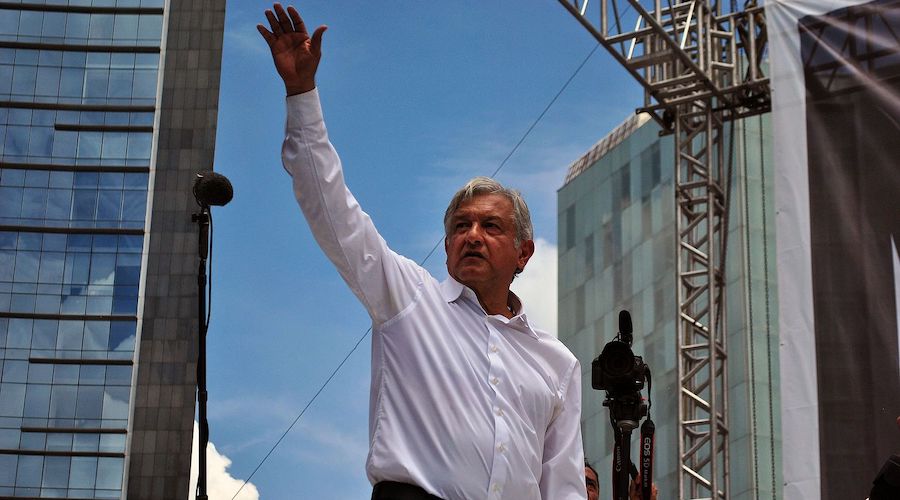Mexico eyes ‘strategic minerals,’ copper limits in mining reform

A proposed mining overhaul from Mexico’s president that seeks greater government control over the sector has swung the ruling party back to its nationalist leanings and alarmed industry leaders.
At the heart of the proposal is the country’s nascent lithium industry. It could also include copper, the heavyweight of Mexico’s metals sector, which last year generated more than $18 billion in exports and contributed around 8% of gross domestic product.
Critics say the president’s draft plan will chill investor appetite for Mexican mining, as well as risk a fresh trade dispute with both Washington and Ottawa.
The proposed legislation, which could still be amended and would need a two-thirds majority in Congress, says the government will no longer award concessions to mine lithium “and other strategic minerals” needed for the country’s energy transition. It does not provide a list of the minerals nor what it plans as an alternative to concessions.
Senator Alejandro Armenta, a ruling party lawmaker tasked with shepherding the mining initiative through Congress, told Reuters the list includes copper, as well as other metals Mexico does not currently produce like cobalt and nickel. He said it also includes seven rare earth minerals, including neodymium and praseodymium that are used to make magnets in electronics and weapons.
RELATED: Bacanora Lithium says Sonora project safe from Mexico reforms
A spokeswoman for Mexico’s economy ministry, which oversees mining, told Reuters that Armenta’s list of “strategic minerals” was not official, and that the final list would be set by the ministry’s geological service at a later date.
Lopez Obrador’s leftist Morena party controls majorities in both chambers of Congress, but the bill would need support from opposition parties to reach the super majority needed, which some political analysts see as unlikely.
If enacted, the bill would make production of lithium, an ultra-light metal coveted by battery makers, “increasingly unlikely” in Mexico, according to a Citi Research note.
The proposal would enshrine in the constitution that lithium and “other strategic minerals” are “reserved” to the government and no new concessions permitted.
The text says, however, that private miners who can already demonstrate proven lithium exploration in Mexico will not be affected by the new restrictions.
Currently, 17 lithium concessions are active, according to economy ministry data, including several in northern Mexico held by the country’s most advanced prospector, Bacanora Lithium .
The mining overhaul is embedded within Lopez Obrador’s higher-profile electricity reform.
“No contracts”
Armando Ortega, head of the Canadian chamber of commerce’s Mexican mining commission, said the mining proposal’s ambiguous call to forbid private concessions for “other strategic minerals” beyond lithium was worrying.
“Given the initiative’s lack of definitions, you have to conclude that these minerals could be objects of government exclusivity in the future,” he said.
Canadian miners figure prominently in Mexico and have frequently been singled out for criticism by the president.
Ortega, a former international trade negotiator, said the mining proposal also runs afoul of the USMCA North American trade pact’s prohibition against erecting new restrictions to investment beyond those explicitly included in the accord.
Last week, Lopez Obrador appeared to go even further by saying the government should exercise exclusive control over lithium and “no contracts or concessions be given,” sowing confusion. He said the government would look for ways to exploit the lithium in secondary laws to be enacted later, without giving further details.
The president’s spokesperson did not respond to a request for clarification.
The possibility that private miners might be allowed to explore for metals but later prohibited from exploitation and production is not viable, the mining chamber’s Ortega said.
“We’re paying close attention to the legislative process,” said a senior industry source, speaking on condition of anonymity, noting a high level of political posturing over the issue.
(By David Alire Garcia; Editing by Amran Abocar and Rosalba O’Brien)
{{ commodity.name }}
{{ post.title }}
{{ post.date }}




Comments